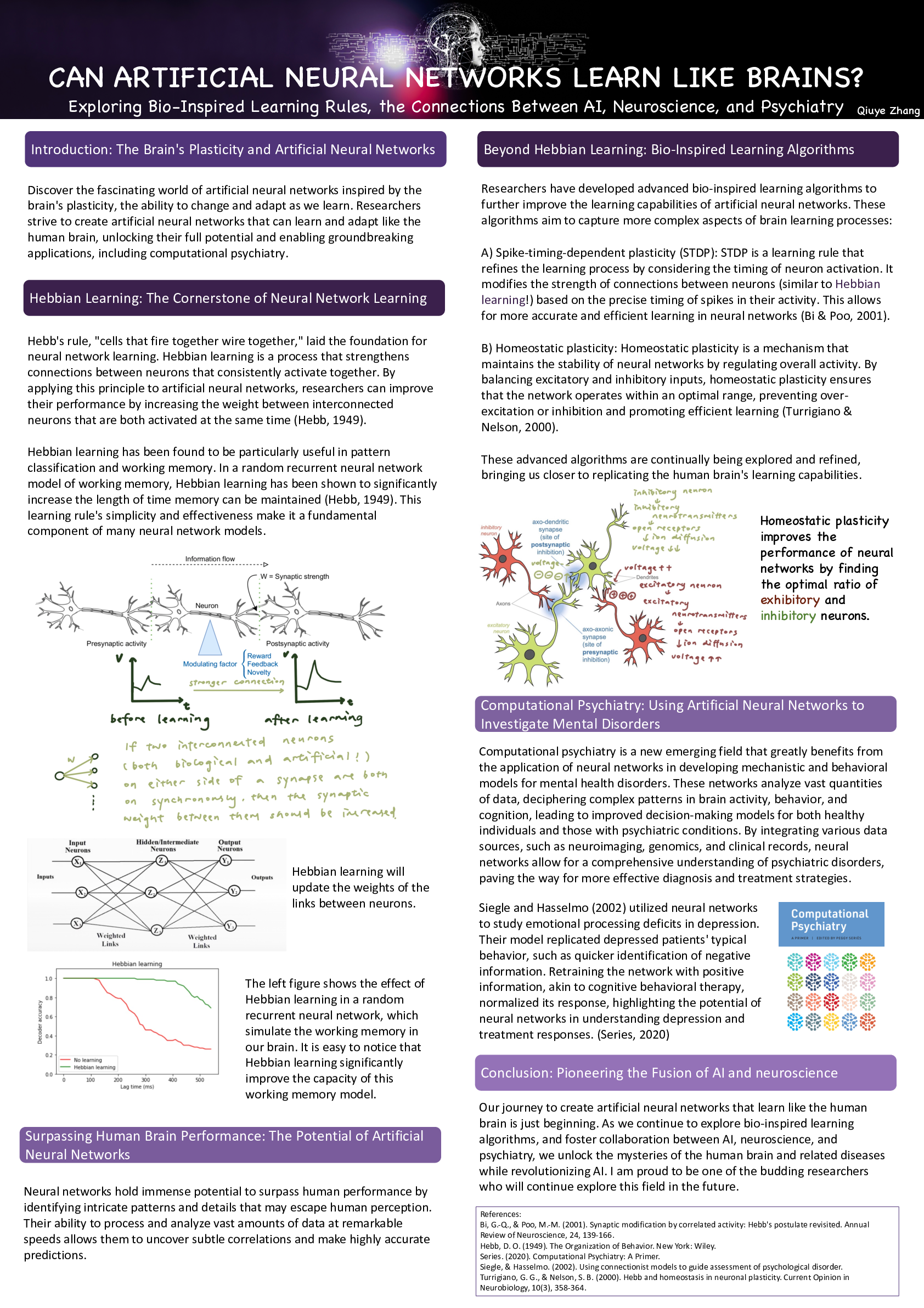BCSWomen organises the annual Lovelace Colloquium: a day featuring talks, a careers panel, employer stands and a student poster contest. This year, three students from the University of Edinburgh made the trip to Sheffield, and Qiuye Zhang in fact won first place with her poster “Can Artificial Neural Networks Learn like Brains?” in the second year contest! Here is how she experienced the event:
I am excited to share my experiences and insights from the Lovelace Colloquium, where I had the opportunity to present my poster on computational neuroscience and computational psychiatry. It was my first time discussing these two fascinating fields publicly, and I was thrilled to see some attendees express interest in computational psychiatry.
Initially, my abstract didn’t mention computational psychiatry, but after being inspired by Peggy and her course on computational cognitive neuroscience, I decided to include it in my poster. The interest and discussions surrounding my presentation exceeded my expectations. We delved into topics beyond the scope of my poster, such as Hopfield networks, Bayesian models, and reinforcement learning models. The judges of the contest were very encouraging about my current research. Their kind words and support reinforced my passion for the subject and motivated me to continue my work in this field.
The event also allowed me to meet many amazing people who provided warm hugs and support when I felt nervous before my presentation. In addition to my poster experience, the keynote speeches were enlightening. They touched on the biases faced by females, gender-neutral individuals, and disabled people, as well as the use of technology to detect violence.
Going forward, I plan to be more mindful of potential biases in my research, particularly concerning people with psychiatric diseases. I will consider whether they receive adequate support and explore how to facilitate their lives when cognitive control is a challenge.
Overall, the Lovelace Colloquium was an enriching experience that allowed me to share my passion for computational neuroscience and psychiatry, learn from others, and connect with amazing people. I’m grateful for the opportunity and look forward to applying my newfound insights in my future work.



